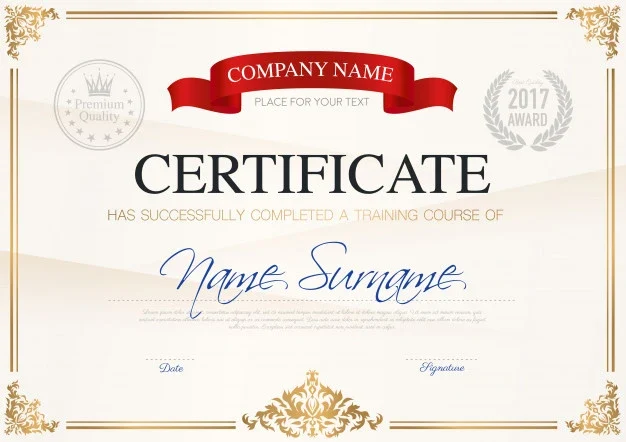
0
+
Google Reviews

0
+
Experience comprehensive training in Advanced QlikView and QlikSense in Kochi. Develop advanced skills in data visualization, dashboard design, and data analysis using QlikView and QlikSense. Gain in-depth knowledge of advanced data modeling, scripting, and application development to drive business intelligence solutions. Benefit from hands-on training with experienced instructors, interactive learning materials, and real-world case studies. Join a dynamic learning environment with practical exercises and personalized guidance. Elevate your QlikView and QlikSense expertise to confidently tackle complex data challenges and unlock actionable insights. Prepare for career advancement opportunities with advanced QlikView and QlikSense training in Kochi.


Duration of Training : 60 hrs
Batch type : weekdays /weekends/ Customized Batches
Mode of Training: Offline / Online / Corporate Training
Projects Given : 2 Projects minimum
Trainer Profile : Experienced Faculty from IT Industry
Projects | Assignment | Scenarios and Used Case Studies






Visual science behind creating QV dashboards Factors to be considered before deployment Best practices for coding and designing the script layout for performance tuning.
Note:
The Scripting features are vast and scenario based approaches to the user demands and will be taken very elaborately with creating scorecards and metrics as a practice of dashboards. The designer sides has multiple properties which will be highlighted when creating the dashboards and as per the look and feel desired to the end user. Performance tuning will be a part of ETL and scripting methodologies which will be implemented in the training
QlikView Architecture | QlikView Association |QlikView Components |QlikView Data Modelling | Generic Load |Master Calendar |Functions |Variables | Aggregation |Set Analysis | Joins and Keep |Cyclic and Hierarchy charts | Scorecards |What if Analyis |AGGR | Incremental Load |Binary Load |
Partial Load | Applymap Functions | Interval match | Adhoc Functions (RGB,dual,Peek,Pick..etc) | Lookup Functions | Loops |QVD’s | Projects
+91 8882400500




I had undergone oracle DBA course under Chetan sir's Guidance an it was a very good learning experience overall since they not only provide us with theoretical knowledge but also conduct lot of practical sessions which are really fruitful and also the way of teaching is very fine clear and crisp which is easier to understand, overall I had a great time for around 2 months, they really train you well.also make it a point to clear all your doubts and provide you with clear and in-depth concepts hence hope to join sometime again

I have completed Oracle DBA 11g from Radical technology pune. Excellent trainer (chetna gupta). The trainer kept the energy level up and kept us interested throughout. Very practical, hands on experience. Gave us real-time examples, excellent tips and hints. It was a great experience with Radical technologies.

Linux learning with Anand sir is truly different experience... I don't have any idea about Linux and system but Anand sir taught with scratch...He has a great knowledge and the best trainer...he can solve all your queries related to Linux in very simple way and giving nice examples... 100 to Anand Sir.

I had a wonderful experience in Radical technologies where i did training in Hadoop development under the guidance of Shanit Sir. He started from the very basic and covered and shared everything he knew in this field. He was brilliant and had a lot of experience in this field. We did hands on for every topic we covered, and that's the most important thing because honestly theoretical knowledge cannot land you a job.

I have recently completed Linux course under Anand Sir and can assuredly say that it is definitely the best Linux course in Pune. Since most of the Linux courses from other sources are strictly focused on clearing the certification, they will not provide an insight into real-world server administration, but that is not the case with Anand Sir's course. Anand Sir being an experienced IT infrastructure professional has an excellent understanding of how a data center works and all these information is seamlessly integrated into his classes.

1. Basic user account management (creating, modifying, and deleting users).
2. Password resets and account unlocks.
3. Basic file system navigation and management (creating, deleting, and modifying files and directories).
4. Basic troubleshooting of network connectivity issues.
5. Basic software installation and package management (installing and updating software packages).
6. Viewing system logs and checking for errors or warnings.
7. Running basic system health checks (CPU, memory, disk space).
8. Restarting services or daemons.
9. Monitoring system performance using basic tools (top, df, free).
10. Running basic commands to gather system information (uname, hostname, ifconfig).
1. Intermediate user account management (setting permissions, managing groups).
2. Configuring network interfaces and troubleshooting network connectivity issues.
3. Managing file system permissions and access control lists (ACLs).
4. Performing backups and restores of files and directories.
5. Installing and configuring system monitoring tools (Nagios, Zabbix).
6. Analyzing system logs for troubleshooting purposes.
7. Configuring and managing software repositories.
8. Configuring and managing system services (systemd, init.d).
9. Performing system updates and patch management.
10. Monitoring and managing system resources (CPU, memory, disk I/O).
1. Advanced user account management (LDAP integration, single sign-on).
2. Configuring and managing network services (DNS, DHCP, LDAP).
3. Configuring and managing storage solutions (RAID, LVM, NFS).
4. Implementing and managing security policies (firewall rules, SELinux).
5. Implementing and managing system backups and disaster recovery plans.
6. Configuring and managing virtualization platforms (KVM, VMware).
7. Performance tuning and optimization of system resources.
8. Implementing and managing high availability solutions (clustering, load balancing).
9. Automating system administration tasks using scripting (Bash, Python).
10. Managing system configurations using configuration management tools (Ansible, Puppet).
1. Learning basic shell scripting for automation tasks. 2. Understanding file system permissions and ownership. 3. Learning basic networking concepts (IP addressing, routing). 4. Learning how to use package management tools effectively. 5. Familiarizing with common Linux commands and utilities. 6. Understanding basic system architecture and components. 7. Learning basic troubleshooting techniques and methodologies. 8. Familiarizing with basic security principles and best practices. 9. Learning how to interpret system logs and diagnostic output. 10. Understanding the role and importance of system backups and restores.
1. Advanced scripting and automation techniques (error handling, loops).
2. Understanding advanced networking concepts (VLANs, subnetting).
3. Familiarizing with advanced storage technologies (SAN, NAS).
4. Learning advanced security concepts and techniques (encryption, PKI).
5. Understanding advanced system performance tuning techniques.
6. Learning advanced troubleshooting methodologies (root cause analysis).
7. Implementing and managing virtualization and cloud technologies.
8. Configuring and managing advanced network services (VPN, IDS/IPS).
9. Implementing and managing containerization technologies (Docker, Kubernetes).
10. Understanding enterprise-level IT governance and compliance requirements.
1. Designing and implementing complex IT infrastructure solutions. 2. Architecting and implementing highly available and scalable systems. 3. Developing and implementing disaster recovery and business continuity plans. 4. Conducting security audits and vulnerability assessments. 5. Implementing and managing advanced monitoring and alerting systems. 6. Developing custom automation solutions tailored to specific business needs. 7. Providing leadership and mentorship to junior team members. 8. Collaborating with other IT teams on cross-functional projects. 9. Evaluating new technologies and making recommendations for adoption. 10. Participating in industry conferences, workshops, and training programs.
Abu Dhabi
Abu Dhabi
Abu Dhabi
Abu Dhabi
Abu Dhabi
Abu Dhabi
Abu Dhabi
Abu Dhabi
Abu Dhabi
Abu Dhabi
Abu Dhabi
Abu Dhabi
Abu Dhabi
Abu Dhabi
Abu Dhabi
Abu Dhabi
Abu Dhabi
Abu Dhabi
Abu Dhabi
Abu Dhabi
Abu Dhabi
Abu Dhabi
Abu Dhabi
Abu Dhabi
Abu Dhabi
Abu Dhabi
Abu Dhabi
Abu Dhabi
Abu Dhabi
Abu Dhabi
Abu Dhabi
Abu Dhabi
Abu Dhabi
Abu Dhabi
Abu Dhabi
Abu Dhabi
Abu Dhabi
Abu Dhabi
Abu Dhabi
Abu Dhabi







(Our Team will call you to discuss the Fees)


(Our Team will call you to discuss the Fees)